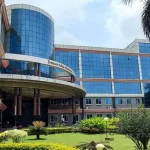In today’s globalized education landscape, thousands of Indian students pursue MBBS degrees abroad each year. Countries like Russia, Ukraine, China, the Philippines, and Georgia have become popular due to affordable fees and lower competition. However, before these graduates can practice in India, they must clear the Foreign Medical Graduate Examination (FMGE).
If you’re planning to study MBBS abroad or have already completed your degree overseas, here’s everything you need to know about FMGE, its structure, eligibility, and how to prepare effectively.
What is FMGE?
The Foreign Medical Graduate Examination (FMGE) is a licensure examination conducted by the National Board of Examinations in Medical Sciences (NBEMS). It is mandatory for Indian citizens or Overseas Citizens of India (OCI) who have earned their medical degree from a foreign institution and wish to practice medicine in India.
Who Needs to Appear for FMGE?
You must take the FMGE if:
- You are an Indian citizen or OCI.
- You have completed your MBBS (or equivalent) degree from a medical school outside India.
- Your foreign medical qualification is recognized by the medical regulatory body of that country.
- You do not hold a medical degree from countries exempt from FMGE, such as the USA, UK, Canada, Australia, or New Zealand, as recognized by NMC.
FMGE Eligibility Criteria
To appear for FMGE, you must:
- Be a citizen of India or an OCI.
- Hold a primary medical qualification (MBBS or equivalent) confirmed by the concerned Indian Embassy.
- Submit all required documentation, including proof of nationality, degree, passport, eligibility certificate (if applicable), etc.
- Apply within the stipulated NBEMS application window.
Exam Pattern of FMGE
- Mode: Computer-based (Online)
- Duration: 5 hours (divided into 2 parts)
- Total Questions: 300 (150 in each part)
- Question Type: Multiple Choice Questions (MCQs)
- Negative Marking: None
- Passing Criteria: Minimum 150 out of 300 (50%)
Subjects Covered:
The FMGE syllabus is based on the MBBS curriculum in India and includes:
- Anatomy
- Physiology
- Biochemistry
- Pathology
- Pharmacology
- Microbiology
- Forensic Medicine
- ENT, Ophthalmology
- Community Medicine
- Medicine & Allied subjects
- Surgery & Allied subjects
- Obstetrics & Gynecology
- Pediatrics
FMGE 2025: Important Dates (Tentative)
| Event | Expected Timeline |
| Online Application Starts | May–June 2025 |
| Admit Card Release | 1 week before exam |
| FMGE 2025 Exam Date | 01-06-2025 |
| Result Declaration | 01-07-2025 |
Note: Always check the official NBEMS website for updates.
FMGE Pass Rate & Challenges
- Pass Rate: Historically low (often between 10–25%)
- Common Reasons for Low Pass Rate:
- Language and teaching barriers abroad
- Poor foundation in clinical subjects
- Lack of familiarity with the Indian healthcare system
- Less rigorous academic environment in some foreign universities
FMGE vs NEXT: What’s Changing?
The National Exit Test (NEXT) is proposed to replace FMGE and NEET-PG in the near future. As per NMC guidelines, NEXT may become mandatory for all Indian and foreign graduates. However, until NEXT is fully implemented, FMGE remains the licensure route for foreign medical graduates.
How to Prepare for FMGE?
- Start Early: Ideally begin in the final year of your MBBS abroad.
- Use Standard Indian MBBS Books: Focus on subjects like Medicine, Surgery, PSM, and Pharmacology.
- Join FMGE Coaching: Institutes like DAMS, Dr. Bhatia, and Marrow offer focused FMGE crash courses.
- Solve MCQs Daily: Practice from FMGE-specific question banks and test series.
- Revise Regularly: Multiple revisions are key to consolidating memory and improving recall speed.
FMGE Result and Registration
- Once you pass FMGE, you’ll be issued a Pass Certificate by NBEMS.
- You must then apply for provisional or permanent registration with the National Medical Commission (NMC) to start practicing or apply for internship/residency.
Conclusion
The FMGE is a crucial step for Indian students returning from abroad with a medical degree. While the exam is challenging, it is absolutely achievable with structured preparation, discipline, and commitment. With the rising number of students studying MBBS overseas, clearing FMGE not only proves your medical competence but also opens doors to internships, PG entrance exams, and medical practice in India.
If you’re serious about building a medical career in India after studying abroad, start preparing for FMGE early and stay updated on evolving regulations from NMC and NBEMS.

